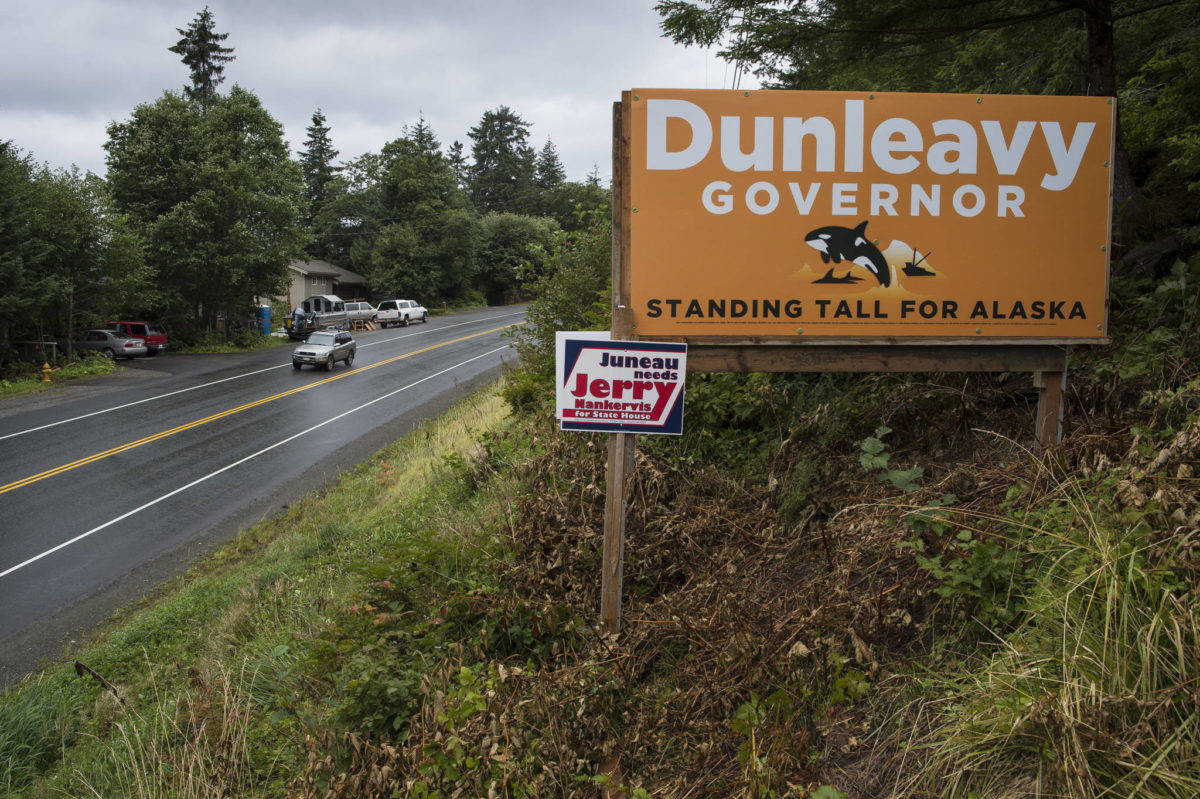It’s an exit sign.
On Tuesday, Anchorage Superior Court Judge Herman Walker Jr. approved a settlement concluding a lawsuit that challenged Alaska’s anti-billboard law.
The settlement keeps the law in place, but the Alaska Department of Transportation is prohibited from enforcing the law as it applies to “small, temporary, political campaign signs … located on private property outside of any highway rights-of-way,” according to the text of the settlement.
“We are happy with the resolution of this case, which ensures that the state can still properly enforce the prohibition on billboards while still allowing small political campaign signs on private property,” wrote Michael Schechter, the assistant attorney general representing the state, in an email to the Empire.
The plaintiffs also receive $15,000 from the state to cover attorneys’ fees and costs.
“The amount is significantly less than what the Plaintiffs would have claimed in fees if the case had continued,” Schechter wrote.
The lawsuit had been brought by the American Civil Liberties Union’s Alaska chapter and a campaign group supporting Mike Dunleavy for Governor. The two groups filed suit on behalf of a Palmer man who claimed the state removed his political sign but ignored a sign advertising a farmers’ market.
Under state law, “outdoor advertising may not be erected or maintained within 660 feet” of a state-owned roadway’s right of way. There are small exemptions for things like for-sale signs, directional signs and landmark signs, but in general, Alaska forbids most kinds of outdoor advertising, including billboards.
Restrictions of some kind have been in place since Alaska’s territorial days, and a 1998 ballot measure (largely a message of intent rather than actual law-making) indicated widespread support for a ban. The measure was advertised as a ban, and it received the support of 72 percent of voters.
In the runup to this election, the independent-expenditure election group known as Dunleavy for Alaska distributed a large number of campaign signs across the state, and other campaigns had their usual distribution of signs. DOT right-of-way agents embarked on a campaign of their own, this one to remove signs posted too close to state roads.
That resulted in the lawsuit, which was predicated upon the idea that the state’s sign-removal campaign was an infringement of the First Amendment right to free speech.
DOT attorneys warned that if the lawsuit proceeded, the entire state billboard ban could be ruled unconstitutional, allowing advertising of all kinds. The ACLU insisted that was not its goal.
In September, the DOT and plaintiffs reached a tentative agreement: In the ongoing election, the state would not remove small political signs from private property within the 660-foot zone during the election.
Tuesday’s settlement is along those lines. Property owners can have signs on their property within the 660-foot zone as long as they haven’t been paid for the placement. If the sign is a safety hazard — such as blocking drivers’ line of sight — it can be removed by the state. DOT can remove any sign from the highway right-of-way without notice, and the settlement doesn’t touch upon the state’s broader ban on billboards.
• Contact reporter James Brooks at jbrooks@juneauempire.com or 523-2258.

